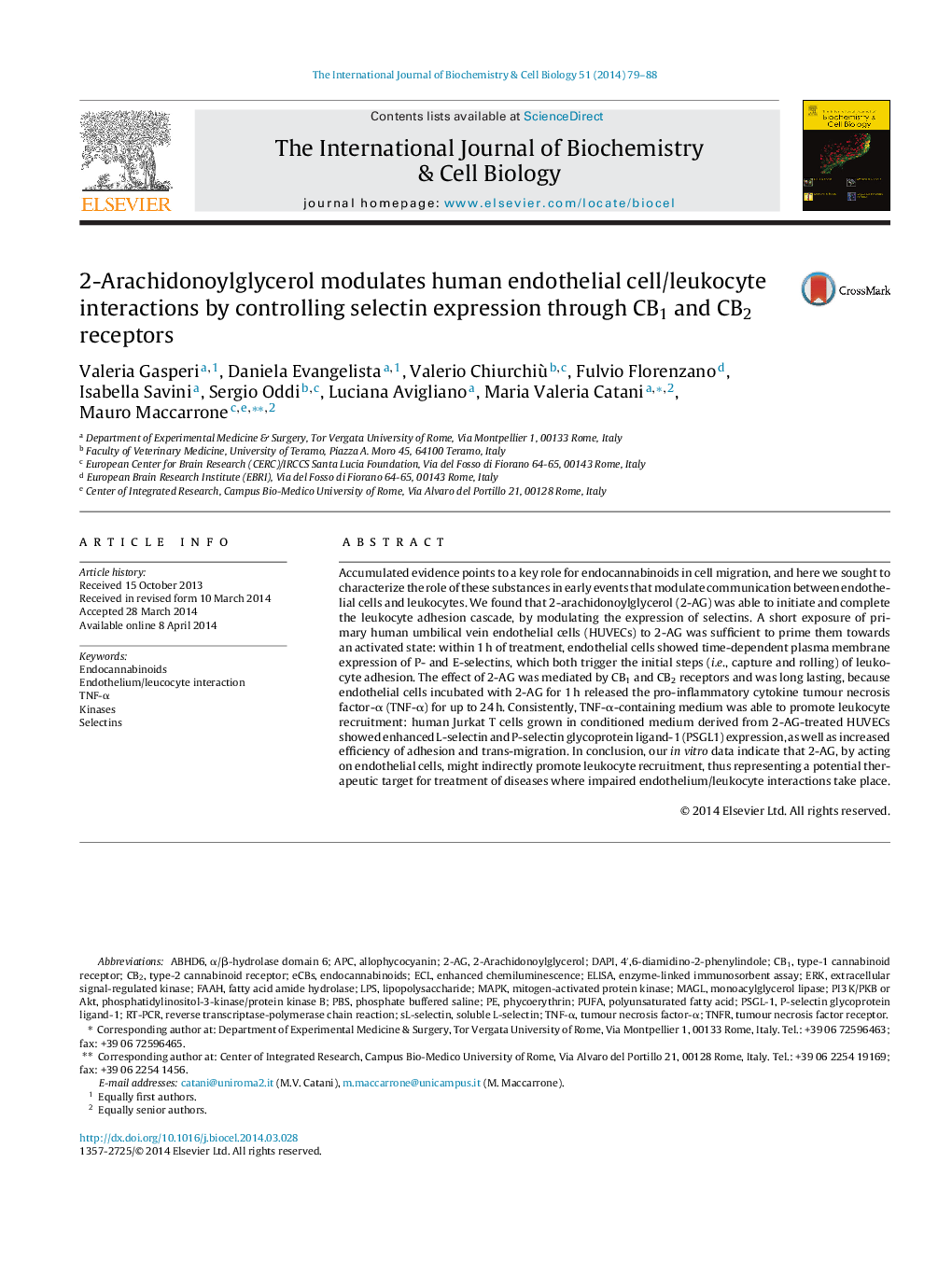| Article ID | Journal | Published Year | Pages | File Type |
|---|---|---|---|---|
| 8323566 | The International Journal of Biochemistry & Cell Biology | 2014 | 10 Pages |
Abstract
Accumulated evidence points to a key role for endocannabinoids in cell migration, and here we sought to characterize the role of these substances in early events that modulate communication between endothelial cells and leukocytes. We found that 2-arachidonoylglycerol (2-AG) was able to initiate and complete the leukocyte adhesion cascade, by modulating the expression of selectins. A short exposure of primary human umbilical vein endothelial cells (HUVECs) to 2-AG was sufficient to prime them towards an activated state: within 1 h of treatment, endothelial cells showed time-dependent plasma membrane expression of P- and E-selectins, which both trigger the initial steps (i.e., capture and rolling) of leukocyte adhesion. The effect of 2-AG was mediated by CB1 and CB2 receptors and was long lasting, because endothelial cells incubated with 2-AG for 1 h released the pro-inflammatory cytokine tumour necrosis factor-α (TNF-α) for up to 24 h. Consistently, TNF-α-containing medium was able to promote leukocyte recruitment: human Jurkat T cells grown in conditioned medium derived from 2-AG-treated HUVECs showed enhanced L-selectin and P-selectin glycoprotein ligand-1 (PSGL1) expression, as well as increased efficiency of adhesion and trans-migration. In conclusion, our in vitro data indicate that 2-AG, by acting on endothelial cells, might indirectly promote leukocyte recruitment, thus representing a potential therapeutic target for treatment of diseases where impaired endothelium/leukocyte interactions take place.
Keywords
CB1sl-selectinSoluble L-selectinPSGL-1TNFReCBsCB2FAAHABHD62-arachidonoylglycerolECLmaglAPCDAPILPS2-AGPBSERKRT-PCR4′,6-diamidino-2-phenylindoleMAPKallophycocyaninFatty acid amide hydrolasePolyunsaturated fatty acidPUFASelectinsendocannabinoidsenhanced chemiluminescenceELISAEnzyme-linked immunosorbent assaytumour necrosis factor-αTNF-αphycoerythrinPhosphate buffered salinemonoacylglycerol lipaselipopolysaccharideP-selectin glycoprotein ligand-1type-1 cannabinoid receptorReverse transcriptase-polymerase chain reactionmitogen-activated protein kinaseextracellular signal-regulated kinaseKinases
Related Topics
Life Sciences
Biochemistry, Genetics and Molecular Biology
Biochemistry
Authors
Valeria Gasperi, Daniela Evangelista, Valerio Chiurchiù, Fulvio Florenzano, Isabella Savini, Sergio Oddi, Luciana Avigliano, Maria Valeria Catani, Mauro Maccarrone,
